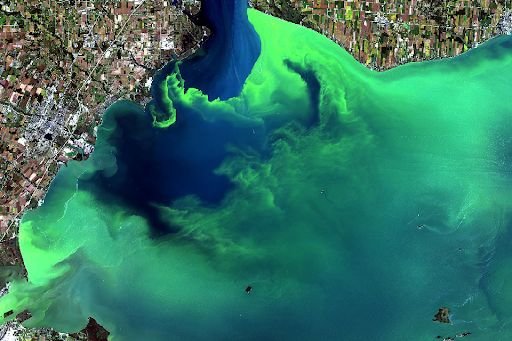
Sustainable Desalination: Phosphorus-Free Water Treatment
Environmental Damage from Excess Phosphorus
October 11, 2023
3 minutes
Water Treatment
By Tee Mariga
Download Free Water Treatment GuideSustainable Desalination: Phosphorus-Free Water Treatment
Seawater desalination by reverse osmosis (RO) is a valuable supplementary source of drinking water around the globe. At the same time, the impacts of the desalination process on the environment — due in large part to antiscalant chemicals—have become an area of increased scrutiny.
Most chemical desalination of seawater today utilizes phosphorus-based antiscalants to prevent buildups of mineral scale on equipment and membranes. Scale is a common problem that hinders membrane performance and requires costly equipment replacements, so scale prevention is key to a successful desalination process.
These phosphorus-containing antiscalants, however, are suspected of contributing to algal blooms in both fresh and saltwater bodies where RO concentrate is discharged, threatening wildlife and the water quality of bays, lakes, and coastal waters.
The Role of Phosphorus in Environmental Damage
Nutrients like phosphorus and nitrogen are essential for plant life. They’re both necessary in water in naturally occurring quantities. Even so, excessive amounts of phosphorus can cause a type of nutrient pollution called “eutrophication” in groundwater, freshwater, and seawater.
Eutrophication is a process where algae feed on the nutrients, causing it to grow aggressively (an “algal bloom”), turn the water green, and choke out other aquatic life by blocking sunlight and removing oxygen from the water. This is harmful not only to aquatic life, but also to human health and communities.
For these reasons, reducing nutrient pollution and the addition of unnecessary phosphorus to drinking water sources is critical for the long-term safety of water systems and the environment.
Harmful Algal Blooms (HABs) Are a Real Threat to Water Sources
In the United States and around the world, the conditions that lead to harmful algal blooms are a growing concern, according to the EPA. Algal blooms can release harmful toxins that cause illness in animals and humans when consumed in desalinated water or from freshwater sources.
The term “harmful algal bloom” or “HAB” refers to a harmful and potentially toxic overgrowth of algae. A type of algae called cyanobacteria, also called blue-green algae, is the usual culprit. HABs create conditions where other aquatic flora and fauna cannot survive and can lead to a “dead zone”—an area of water bodies where aquatic life has died off. Some can also release cyanotoxins, which pose further health risks to animals and humans.
The largest dead zone in the U.S. is in the Gulf of Mexico. An area of roughly 6,500 square miles becomes a dead zone covered by harmful algae every summer due to nutrient pollution from the Mississippi River Basin.
Not only are these deadly blooms a threat to health, but also to desalination operations themselves. The noxious substances and neurotoxins released by HABs are not completely removed by RO membranes, and the algae can cause membrane fouling and even cause a plant to be taken offline.
Phosphorus-Free Water Solutions Are Needed in Desalination
Phosphorus-based chemicals can be effective as corrosion and scale inhibitors, but they also pose an environmental issue that makes these options less-than-ideal solution for water desalination plants. Controlling phosphorus emissions must be a priority in the selection of desalination chemicals to prevent water eutrophication.
Fortunately, other highly effective antiscalant options are available. Soltellus™ polymer is a phosphorus-free water treatment solution that uses the biodegradable and multifunctional polyaspartate polymer as a scale inhibitor with corrosion inhibition properties while also helping to stabilize water hardness and keep process conditions predictable. This innovative antiscalant acts to protect your assets while keeping phosphorus out of the chemical desalination of water.
Don’t hesitate to reach out to the application experts at Lygos to learn more about Soltellus™ polyaspartate polymers.